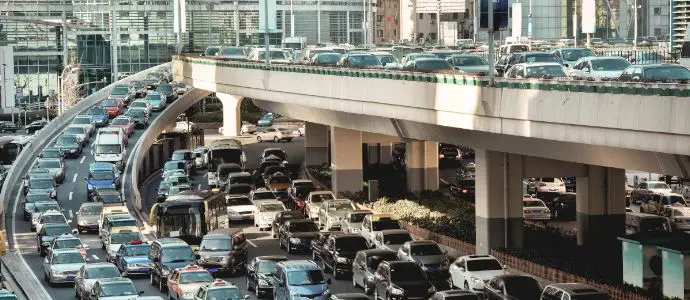Georgia, a bustling state in the southeastern United States is known for its southern hospitality and beautiful landscapes. However, one challenge that both residents and visitors face is the issue of traffic congestion. Navigating Georgia’s roads can often be a daunting task, oftentimes traffic leads to an increase in both frequency and severity in car accidents. Navigating Georgia’s roads can be a daunting task, oftentimes traffic leads to an increase in both frequency and severity in car accidents. According to Bowen Painter car accident lawyers, in Georgia you must file a personal injury claim within two years of the date of the accident.The following are important strategies to successfully maneuver through the state’s traffic congestion.
Plan Ahead
Planning your trips in advance is an effective way to stay ahead of traffic congestion in Georgia. Use navigation apps or websites to check for traffic updates, road closures, or construction work along your intended route. By having this information at your fingertips, you can choose the best time to travel and select alternative routes if necessary. It’s always a good idea to leave early to allow for unexpected delays and ensure a stress-free journey.
Utilize Public Transportation
In major cities like Atlanta, Savannah, and Augusta, public transportation options are available and can help alleviate traffic congestion. Consider using buses, trains, or trams for your daily commute or when traveling within the city. This not only reduces traffic on the roads, but also helps lower carbon emissions and contributes to a greener environment. Many cities offer affordable and convenient transit passes, making it an attractive alternative to driving.
Carpool and Ride-Sharing
Sharing a ride with colleagues, neighbors, or friends can significantly reduce the number of vehicles on the road, easing congestion. Additionally, ride-sharing services like Uber and Lyft provide convenient options for getting around the city without the hassle of driving and parking. These services often have carpool features, allowing you to share rides and split costs with others heading in the same direction.
Alternative Modes of Transportation
Consider alternative modes of transportation to reduce your reliance on personal vehicles. Cycling and walking are not only environmentally friendly but also great ways to beat traffic congestion in urban areas. Many cities in Georgia have dedicated bike lanes and pedestrian friendly infrastructure, making it safer and more convenient to choose these modes of transportation. Electric scooters are also gaining popularity as a quick and efficient way to navigate congested city streets.
Invest in Infrastructure
To address long-term traffic congestion issues, it is crucial for state and local governments to invest in transportation infrastructure. Expanding and improving road networks, enhancing public transportation systems, and implementing intelligent traffic management solutions can all contribute to smoother traffic flow. Georgia’s authorities should prioritize infrastructure projects that target congestion hotspots and focus on sustainable transportation options.
Navigating Georgia’s traffic requires careful planning and consideration of alternative transportation options. By utilizing public transportation, carpooling, ride-sharing, or even biking and walking, individuals can contribute to reducing congestion and improving traffic conditions. Additionally, investing in infrastructure upgrades is vital to address the long-term challenges posed by increasing populations and vehicle numbers. With concerted efforts from both individuals and authorities, Georgia can overcome its traffic congestion and create a more efficient and sustainable transportation system for its residents and visitors.






